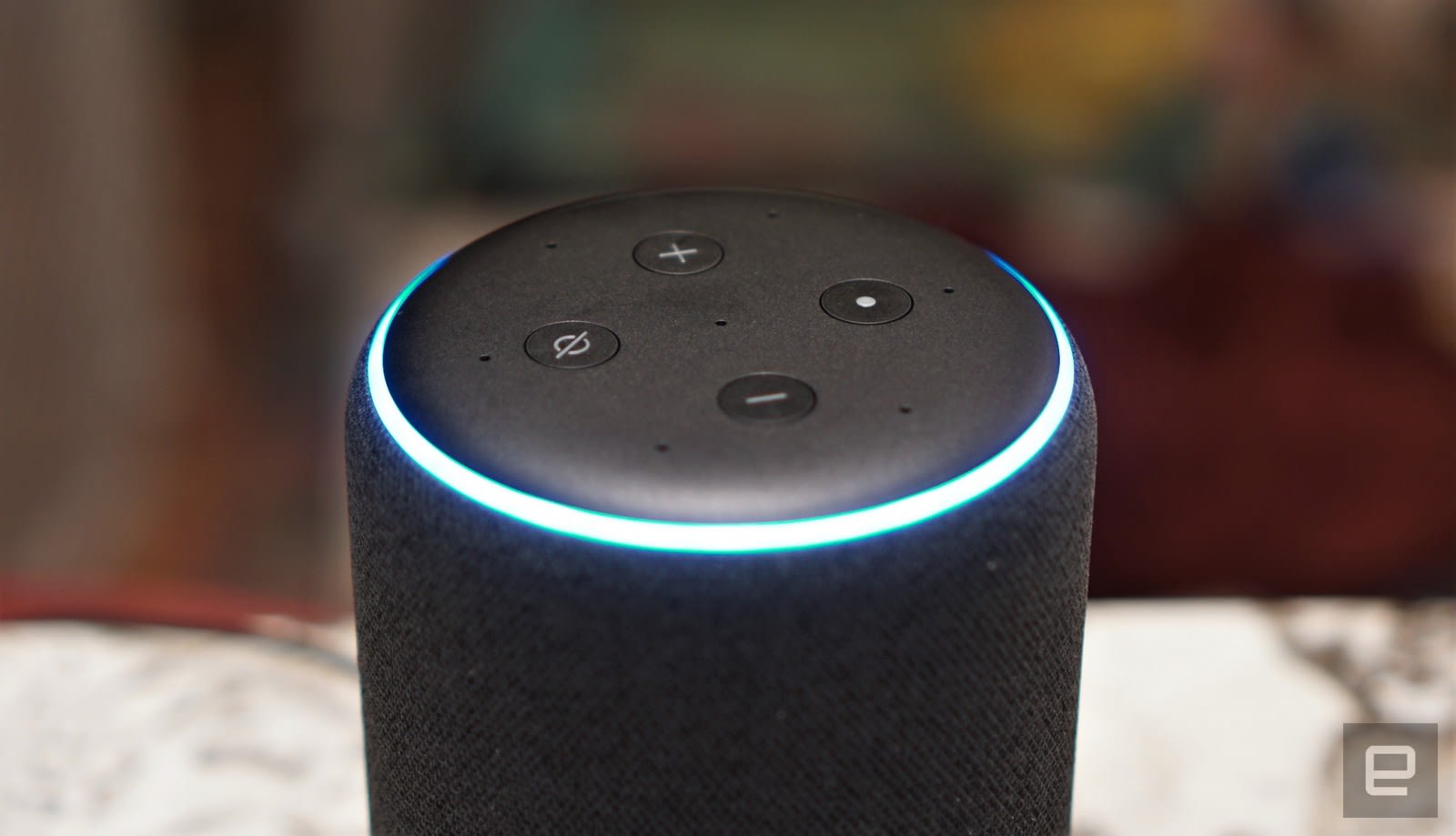While the Echo lacks the smart hub features from the Pro model, I didn’t miss them much. Previously, the biggest benefit with the more expensive model was better audio quality, but now that they sound the same, the Pro is even harder to recommend. I didn’t find its smart home features very useful when I tested the 2017 model, and Amazon hasn’t improved that aspect at all. It’s still stuck with the Zigbee protocol, which keeps it from working with Z-Wave devices. You can also connect plenty of smart gadgets to any Echo device with Alexa skills — that’s how I control my Hue lightbulbs — which makes the Pro’s smart hub even more pointless.
Amazon is also stepping up its privacy efforts after reports emerged that employees were listening to recordings with the goal of improving the voice assistant. Now, you can opt out of that review process entirely. It wasn’t a fully noble decision on Amazon’s part, especially since Google and Apple have also been criticized for similar programs, but at least the company isn’t ignoring privacy concerns completely. Every smart speaker is a potential security risk — they’re all basically a bunch of microphones connected to the cloud — so it’s worth considering their downsides before you bring one home. (It’s also why smart speakers don’t make great gifts, you never know how much people really value their privacy.)
For the privacy conscious, standalone Bluetooth speakers or wireless systems like Sonos make more sense. (Just be sure you avoid the models with microphones and voice assistants baked in.) But if you’re reading this review, I wager you’ve already accepted that the convenience of voice commands trumps potential privacy concerns.
There are also plenty of other ways to get started with Alexa, like the Echo Dot ($60), the Echo Glow nightlight ($30), and the tiny Echo Flex ($25), which can be plugged into any electrical outlet. Those devices are all ways to spread Echo throughout your house, but any of them could easily serve as a gateway to Amazon’s voice assistant. The Echo speaker makes the most sense if you want something that can play music too. And if you’re looking for better sound quality, the Echo Studio ($200) or Sonos One ($199) might be a better fit. There’s also the Echo Show 5 ($90), which is a good option if you’d rather see information than hear it.
If you’re a heavy Android user, or fully enveloped in Google’s ecosystem, one of its smart home devices might make more sense. The Google Home is still around and is technically the Echo’s direct competitor, but it also hasn’t been updated in four years. Instead, Google is pushing the Nest Hub ($99, formerly Home Hub) smart display. If you haven’t invested in any of these smart devices yet, it’s worth taking a step back to think about which ecosystem you should be a part of. Alexa makes more sense if you don’t use many Google services, and if you want the largest amount of support for third-party devices and services.
As an entry into the world of Alexa, it’s hard to find fault with the third generation Echo. It’s relatively inexpensive, it sounds fantastic and it handles voice commands like a charm. It’s taken several years, but Amazon has finally managed to deliver a $100 Echo that gets all the basics right. But, ironically, Amazon’s success means it also has plenty of other competing options to choose from
All products recommended by Engadget are selected by our editorial team, independent of our parent company. Some of our stories include affiliate links. If you buy something through one of these links, we may earn an affiliate commission.

Comments

44
Shares




